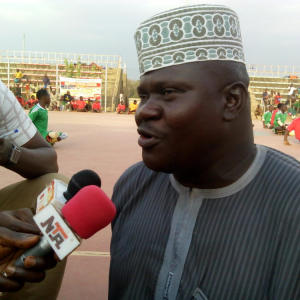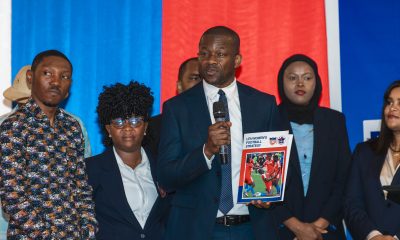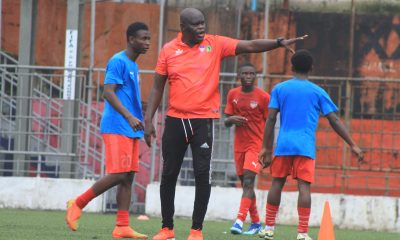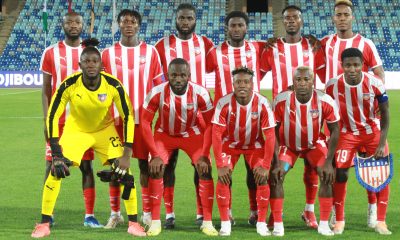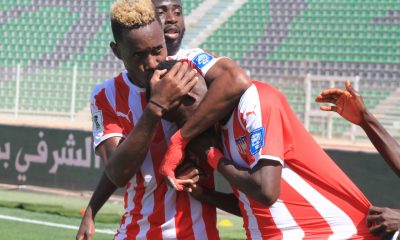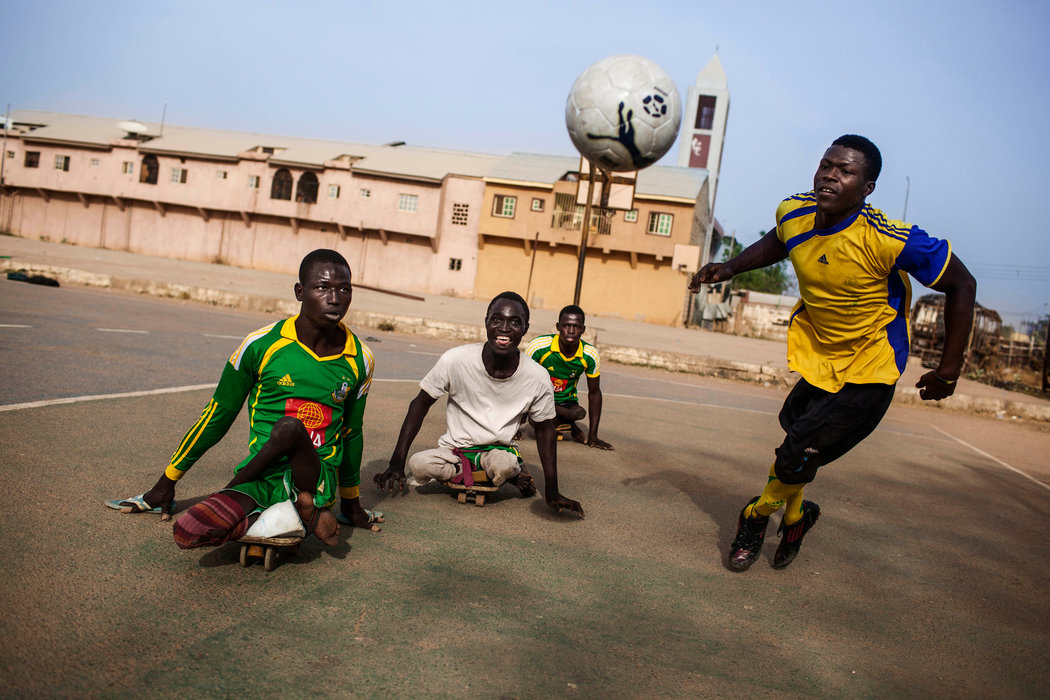
In a place where disability is a reminder of the polio outbreak and a sign of no hope, Nigeria’s para-soccer body is looking to spread a light of hope for those affected by the outcome.
Initially referred to as Ground Handball, the game was introduced to Nigeria in 1988 by a group of disabled men, led by Alh. Misbahu Lawal, who is now president of the Para-Soccer Federation of Nigeria (PSFN).
Para-soccer means paraplegic soccer – played mainly with hands and has a likening to handball. It’s attraction later led to a global recognition and propagation by the efforts of the Nigeria Association for the Disabled.
However, since its inception, the group has struggled to maintain relevance and is seeking support from the Nigerian government. Disabled people have been shunned and over looked because their inabilities have led them to become street beggars with no priorities in the community.
The Nigerian Paralympic Committee (NPC) believes that in order for para-soccer to be accepted by Nigerians and more so, the International Paralympic Committee (IPC), Nigeria’s sports ministry needs to turn it into a compulsory sport. The ministry’s inability to introduce the sport to an effective level, is affecting its chances internationally.
NPC president, Monday Emoghawve said, “As it is today, para-soccer has been our baby; few months ago, I contacted the International Paralympic Committee (IPC) with headquarters in Germany.
[perfectpullquote align=”full” cite=”” link=”” color=”” class=”” size=””]”They told me that before para-soccer can be accepted worldwide, that we should be able to take the sport to the five continents of the world.”[/perfectpullquote]
So far the sport has been able to reach four African countries – Ghana, Togo, Benin Republic and Niger Republic – but it needs sufficient coverage if it is to one day make it to the Paralympic Games.
“The media should help ensure the Ministry of Sports do not remove para-soccer from the National Sports Festival.
“Para-soccer should be the number one sport when it comes to the NSF,’’ Emoghawve said.
The players are also carrying on this task to encourage Nigeria to give them the support they need. For them, it is a second chance at life after what seemed like a hopeless future.
Bello Dan-Auta is the captain of para-soccer club, Kaduna and believes physically challenged sportsmen can just as much, make their country proud at international level as any other abled being.
Just like his fellow advocates, Dan-Auta is also on a journey embarked on getting the sport global recognition, an initiative he believes government has a big role to play in.
According to Dan-Auta, the recent performance of Nigerian Paralympians at Rio 2016 Paralympics, is a big step in demonstrating ‘ability in disability’, as long as the necessary support is made available.
“The performance of the few members of the Paralympics team in Rio at the just concluded Paralympics games in Brazil is a testimony that if given the necessary support, they would even do better.
“When you compare their performance with that of the able bodied athletes, you begin to wonder why government does not give more attention to those who always do well at their games.
[perfectpullquote align=”full” cite=”” link=”” color=”” class=”” size=””]”Physically challenged athletes train on meagre resources but they excel so I want government to give them more attention,”[/perfectpullquote]
he said.
But a slow or close to zero response from government, risks dampening the disabled athletes’ high spirits and as a result, force them back into a life they felt had no room for options.
“Every new administration keeps making promises but this is not good enough because without motivation the players won’t give their best at the competitions,” 35-year-old Kasim Garuba, a Kadun-born para-soccer player with TC Terror Club said.
Earlier in July, the Lagos State Para-Soccer Association (LSPSA) suffered a setback after vigorous preparations succumbed to a no-show at the National Para-Soccer League (NPSL). This would not be the first time.
Coach Femi Afolayan in a July interview said, “It’s unfortunate we did not make it to Kano, all efforts to get funds from the Lagos State Sports Commission (LSSC) and corporate organizations did not succeed.” This was after the LSSC team was unable to participate in the league held in Kano.
He later added, “A similar thing happened in 2011 and it’s not encouraging for the physically challenged athletes.”
But even with little support, para-sport is still championing hope among the disabled. On the bright side, the sport has been hailed for its positive impact it has had on the physically challenged.
Apart from the chance to play with the belief of one day turning pro, para-sport has also become an income generating tool for business start-ups and has created employment opportunities.
According to Lawal, “Initially people looked down on any person with disability. The only thing Nigerians knew then was, once you are disabled, you are a beggar.
“With this game, the attitude of people has changed on the issue of disability, especially looking at us as a people who can entertain others and contribute towards the development of Nigeria,” he said.
Lawal goes on to explain the benefits of the sport and said, “The pain with disability in Nigeria has dropped because some of us have got employment, running private businesses and are highly educated.
“A lot of people with disability in the country are professors. That is to tell that we have changed from the negative way to the positive.”
President of the Para-Soccer Federation of Nigeria (PSFN) and founder of para-sport, Alh. Misbahu Lawal (parasoccernigeria.com)
Joseph Dakop, chairman of the Physical Handicap Association of Nigeria (PHAN), in Plateau State said, “Most of us living with the disabilities are blessed with so much gifts and talents; it is just the body that is affected, the brain is very active.
“Government should support those of us who have talent in para-soccer, because it will help reduce the risk of street begging in the country.”
According to National Sports Commission (NSC) Director General, Alhassan Yakmut, “Para-sport has been an effective alternative to polio victims’ begging for alms to survive.”
Featured Photo: Polio survivors in playing para-sport in Nigeria. (Diego Ibarra Sánchez/MeMo)

